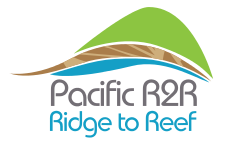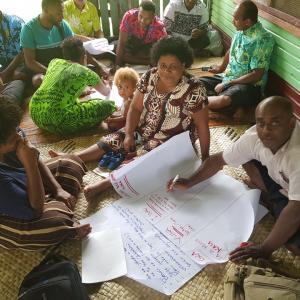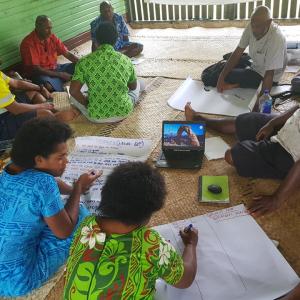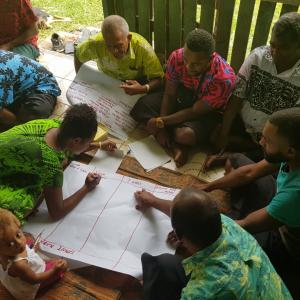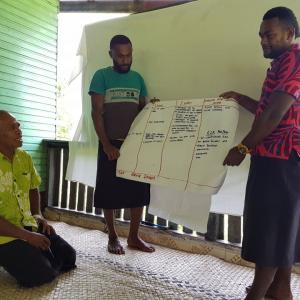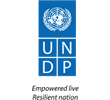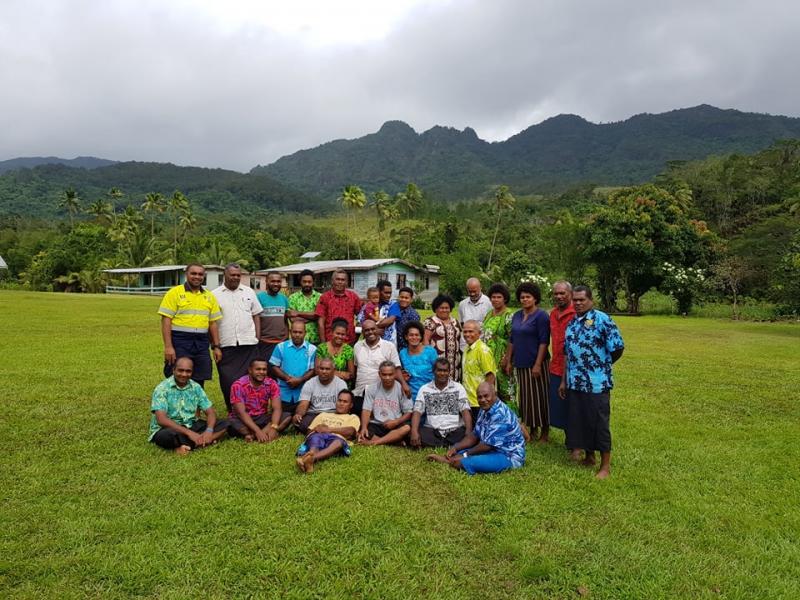
wwfpacific Six villages located in the district of Wairiki, Cakaudrove, in Vanualevu, are focused on helping improve the health of the Labasa and Qawa rivers through rehabilitation efforts such as tree replanting on degraded land areas and river buffers.
The community effort hopes to protect and maintain key ecosystem functions of the Labasa river which include the provision of clean and safe quality drinking water, food and economic livelihood activities such as agriculture.
Their commitment is the focus of the Fiji Global Environmental Facility 5 Star Ridge to Reef (R2R) management of priority water catchments project for the two main islands of Vitilevu and Vanualevu.
At a workshop organised by the WWF-Pacific, 22 community representatives from the villages of Matalolo, Satulaki, Koromakawa, Suweni, Vunitalice and Sokena-Navakuru,were provided with detailed discussions on the effects unsustainable land practices have on their landscapes and why it is important for them to better manage the health of their rivers, forests and streams.
“These communities are located upstream at the headwaters of the Labasa river catchment and their attendance and participation at the workshop is an ideal opportunity for them to learn about the importance of biodiversity, conservation, forest carbon stock protection and integrated natural resources management,” WWF-Pacific Macuata Field project officer Opeti Vateitei.
“WWF’s involvement is to raise awareness on the work that we have done in Macuata by helping villagers identify the issues affecting them and their environment and gauge the status of project activity implementation level.
“We are thankful to WWF for the exchange of vital information provided to us and we are in the process of establishing our district committee and in the long term focus on creating a 5-20 year long term development plan,” Poasa Voce, the Wairiki district representative said.
Vateitei highlighted that the villagers had drafted their community conservation action plans which entails the challenges they currently face and the best practical solutions to protect and sustain their land and river resources.
He adds that these community conservation action plans will be linked to the Labasa watershed management plan.
“From these workshops, we are trying to get as much information from resource owners who are living within the Labasa water catchment to identify key threats negatively affecting the river and downstream communities, that need urgent action and put into place a management system to ensure the damage is progressively reversed. The biggest issue is around sedimentation, the loss of productive top soil off the land, shallowing of the Labasa river that then require expensive efforts to dredge and lastly the impact sediment and waste coming out of the river has on coral reefs and in turn fisheries productivity. Key to the awareness sessions is to remind communities that whether a community is located in the mountain area or coast our actions are interrelated,” said WWF-Pacific Conservation Director Francis Areki.
“What we really want to do now is to get their traditional knowledge on how they do things, so we can integrate that with scientific findings from the University of the South Pacific and other implementing partners and develop a management plan thatcan work and be implemented at their community level,” Areki said
“From the responses during the community discussions, I note that villagers agree that there’s been some damage done to their environment from unsustainable economic activity carried out within the Labasa water catchment, especially the logging, overfishing, gravel extraction and poor waste disposal ,” he said.
The intention will be to strengthen a Wairiki District Committee that will implement key actions with partners for the protection and management of their section of the Labasa River, within the wider Labasa Watershed Management Plan. Wairiki and Labasa Districts are the two areas that contain the Labasa and Qawa Rivers. Both rivers drain out into Qoliqoli Cokovata, Fiji’s second RAMSAR site
The project focuses on improved collaboration amongst resource owners and stakeholders towards identifying critical gaps and needs in biodiversity conservation for marine and terrestrial ecosystems.
This activity is funded by the Global Environment Facility (GEF) Trust Fund and is implemented through United Nations Development Programme and the Fijian Government through the Ministry of Waterways and Environment.
Partners working on the implementation include the Ministry of Fisheries, Ministry of Agriculture, Ministry of I Taukei Affairs, Ministry of Forestry, Cakaudrove Provincial Office, Fiji Locally Managed Marine Area, the University of the South Pacific’s Institute of Applied Sciences, Conservation International, Nature Fiji-Mareqeti Viti and WWF.
Original Publication - https://www.wwfpacific.org/?uNewsID=364560#
Images - © Francis Areki-WWF-Pacific
